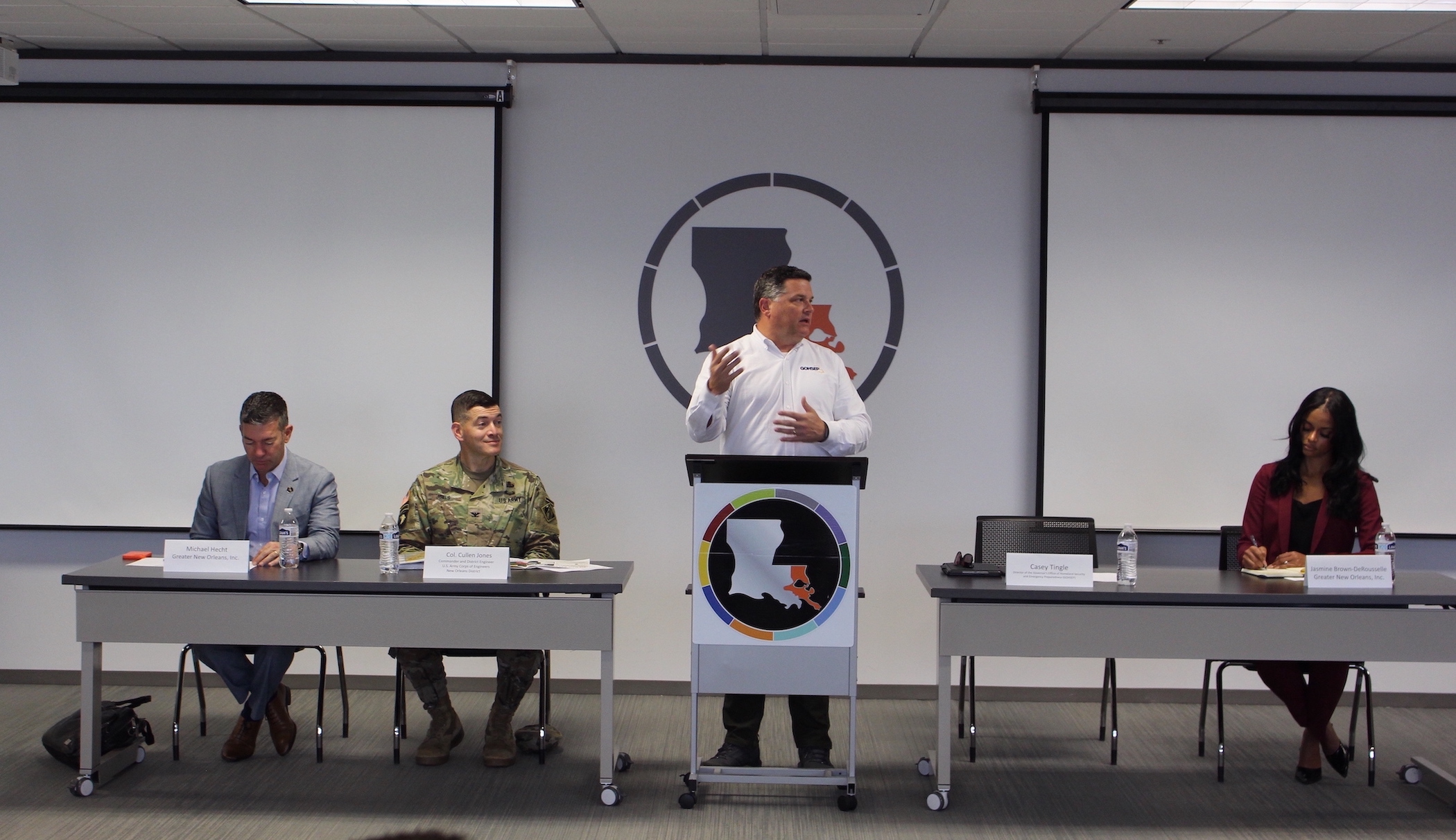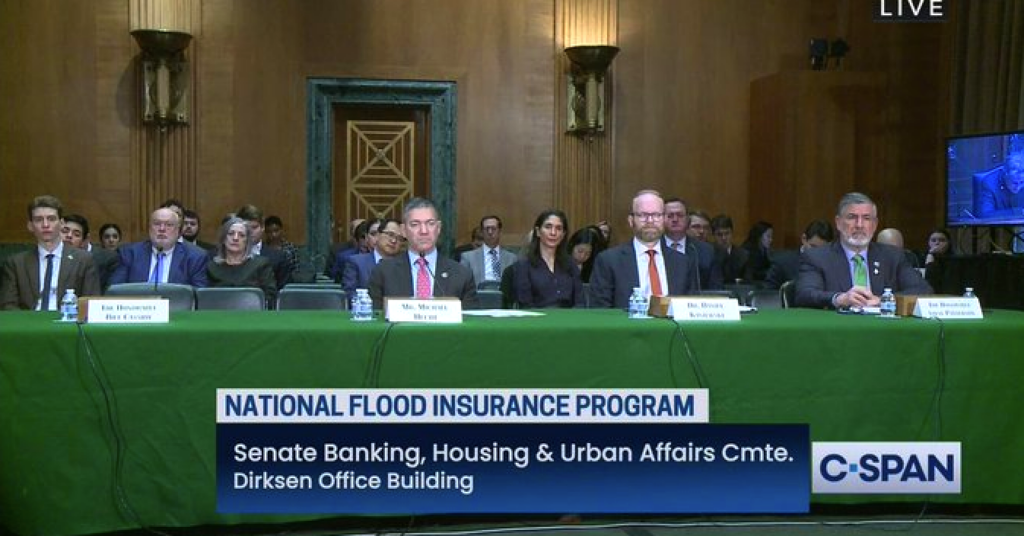Public Policy

Policy Priorities for a Stronger Region
GNO, Inc. works to establish and preserve policies that create a more favorable, competitive, and reliable business climate in Greater New Orleans and drive long-term job growth and wealth creation for its citizens.
Healthy economic growth for our region is GNO, Inc.’s top priority. Notable recent policy achievements include the following pieces of legislation signed into law by Gov. John Bel Edwards:
- Economic Recovery & Development – Provide businesses support as they grow in the region
- Tax Structure – Simplify the tax code and eliminate Louisiana’s personal and corporate income taxes
- Infrastructure – Find creative solutions to fix our roads and support modern transportation
- Workforce – Strengthen workforce and address employment shortages
- Early Childhood – Support early childhood education
- State Retirement – Modernize state retirement plans
- Legal Climate – Build upon efforts to improve Louisiana’s legal climate
- Criminal Justice – Identify community-driven and fiscally responsible reform targets within the criminal justice system
- Coastal Restoration – Support and champion Louisiana’s coastal restoration efforts
2023 Legislative Session Recap
During the course of the 2023 Legislative session, numerous bills that impacted GNO, Inc.’s state priorities were heard and voted upon successfully. These outcomes demonstrate a commitment to supporting business growth, as well as driving reforms to make the state more economically competitive, which will protect and create new jobs for the people of Louisiana.
GNO, Inc. entered the legislative session urging the Legislature and Governor to protect our state’s economy through a broad set of priorities, including infrastructure, workforce, energy, early childhood education, coastal restoration, international trade, criminal justice, and insurance.
GNO, Inc. supported measures that advance the economic prosperity of the region, and defeated efforts that would have been a detriment to the progress of our regional economy.
A recap of the session can be viewed below:
Below is a sample of key outcomes:
INSURANCE – Promote insurer market growth that yields lower premiums for policyholders in homeowners, auto, and commercial auto insurance
- Fortified Roofs – By way of GNO, Inc.-supported HB294 and SB113, insurers will be required to provide discounts for fortified roofs and other hurricane mitigation improvements as well as offer endorsements for fortified roofs (HB110)
- Insurance Ratemaking System – HB489, as originally proposed, would have removed Louisiana’s ability to reject a rate increase in insurance premiums by changing our regulatory system from “Prior Approval” to “Use and File,” moving us into the minority of states. However, GNO, Inc. and the Department of Insurance’s recommendations, as expressed in an Advocate Staff Editorial, were implemented and Louisiana will now be more attractive to insurers by doing away with the Commissioner’s ability to reject a rate increase on the “basis of time”
- Commercial Auto Insurance – GNO, Inc. assisted in developing legislation (SCR19) that creates the “Task Force on Available and Affordable Commercial Motor Vehicle Insurance” to study and report on current burdensome costs, approaches to increase affordability, and the economic impact on state revenue
INFRASTRUCTURE & INTERNATIONAL TRADE – Advance solutions to modernize and optimize our critical infrastructure and trade assets, such as ports, roadways, and railways
- Ports – To promote an increased economic development focus on ports across the state, GNO, Inc. aided in the development of the amended SB214, which creates the “Office of Port Development” within LED, the position of a commissioner, and a Port Development Advisory Commission primarily to develop and implement a statewide port strategic plan. The bill originally proposed to rename LED as the “Department of Commerce,” and move responsibilities of the office of multimodal commerce from DOTD into this department
ENERGY – Promote an all-of-the above energy approach
- Carbon Capture – GNO, Inc. assisted in overcoming legislation that would have prohibited the construction of permanent above-surface structures, such as offshore wind turbines, servicing platforms, and Class VI injection wells for CCS on Lake Maurepas (HB120) and placed a moratorium on CCS projects on Lake Maurepas and the Maurepas Swamp Wildlife Management Area (HB267)
- Offshore Wind – Led by CPEX and supported by GNO, Inc., efforts to complete a statewide offshore wind plan and a transmission study will be funded through a $4M allocation in the state’s supplemental budget (HB560)
INCENTIVES – Support and defend drivers of business expansion, attraction, and retention
- Angel Investor, R&D, Motion Picture Tax Credits – With strong support from GNO, Inc., the Research and Development Tax Credit (SB69) will be extended to 2029, the Angel Investor Tax Credit (SB108) to 2030, and the Motion Picture Tax Credit (HB562) to 2031
- Incentives Overhaul – GNO, Inc. successfully led an effort, in collaboration with business groups from around the state to defeat a measure (HB641) that would have repealed critical tax exemptions, exclusions, credits, deductions, and other tax incentives in 2027
CRIME AND CRIMINAL JUSTICE – Increase public safety and advocate for responsible criminal justice reform
- Recruitment – GNO, Inc. supported the creation of the Law Enforcement Recruitment Incentive Program (HB563), and a corresponding fund to provide one-time incentive payments of $5,000 to newly-employed law enforcement officers
- Expungements – The expungement process will be technologically updated to make the procedure accessible and affordable for those who are currently eligible for expungement under the law through the passage of SB111, which was supported by GNO, Inc.
EARLY CHILDHOOD – Support robust investments in early childhood education
- Funding – $44 million in the state’s budget (HB1) has been allocated to the Child Care Assistance Program, which is the largest investment of state dollars into the program in over a decade. GNO, Inc. initiated discussions with key legislative leaders to support this allocation
COASTAL RESTORATION & PROTECTION – Support and champion Louisiana’s coastal restoration efforts
- Coastal Master Plan – The state’s 2023 Coastal Master Plan (SCR17), a 50-year, $50B plan was approved by the legislature, as well as the record-breaking $1.62B FY24 Annual Plan (SCR6), which will fund 147 projects across our coast, supporting nearly 9,000 jobs in the coastal sector
The future of the Greater New Orleans and Louisiana economies are better positioned for success thanks to the 2023 Legislative Session. Special thanks are in order to the Greater New Orleans delegation for their leadership in ensuring that the future of the region is protected and fueled by productive legislation. The approved bills will now go to the Governor, who may sign them, allow them to go into law without his signature, or veto them.
Coalition for Sustainable Flood Insurance
GNO, Inc. believes stability, availability and affordability of flood insurance is a critical component of a thriving business environment. To that end, GNO, Inc. established the Coalition for Sustainable Flood Insurance (CSFI) in 2013, in response to implementation of the Biggert-Waters Act, which created unaffordable and unsustainable National Flood Insurance Program (NFIP) premiums across the country.
CSFI advocated for passage of the Homeowner Flood Insurance Affordability Act in 2014, with support of both causes (cosponsored by 235 House Members, supported by 306 Members and 72 Senators).
Since inception, CSFI has worked with more than 250 organizations, across 35 states, including homebuilders, chambers of commerce, lawmakers, and consumer advocates. CSFI continues to advocate for efficient implementation of and successful long-term reauthorization of NFIP and believes the following principles are critical to sustainable flood insurance:
- Risk Assessment – Enhancing the way we assess and communicate risk will protect communities and the NFIP over the long-term and help to close America’s flood insurance gap. Congress and FEMA should use state of the art technology to accurately and simply communicate flood risk
- Affordability – Premiums must remain affordable, and people who played by the rules at the time they built or bought their flood policy should not be penalized.
- Mitigation – A comprehensive approach to reducing flood losses before a disaster occurs is a more effective means to reducing economic loss and protecting taxpayers’ interests. Federal, state, and local governments should prioritize investments in mitigation, as should home and business owners
- Participation – Adopting policies that encourage more people to carry flood insurance will ensure a greater understanding of flood risk and that individuals and communities recover more quickly and fully following a flood event
Head to the CSFI website for more information and to sign up for updates.
Federal Policy Priorities
GNO, Inc. works at the federal level to support and advance the following advocacy efforts:
- National efforts to reauthorize and reform the National Flood Insurance Program
- Pro-growth tax policies that alleviate burdens on small businesses and simplify tax administration and collections
- Continued funding of the U.S. Economic Development Administration, which invests in local job creation
- Pro-trade policies that support Louisiana’s robust export economy
- Federal investments in Louisiana’s infrastructure, from our extensive port system and national energy infrastructure, to roadways, bridges, and high-speed rail
- Policies that protect Southeast Louisiana’s military installations
- Federal investments in Louisiana’s advanced manufacturing facilities
- Policies that make Louisiana more resilient, including funding for coastal restoration


